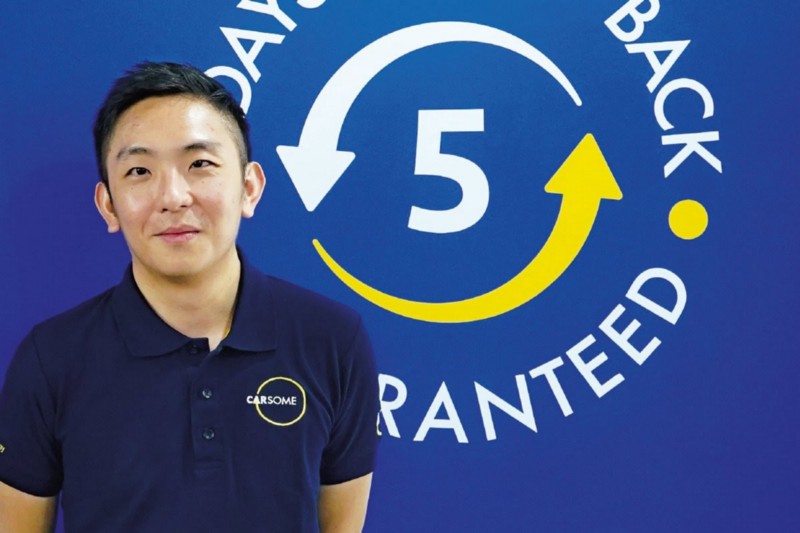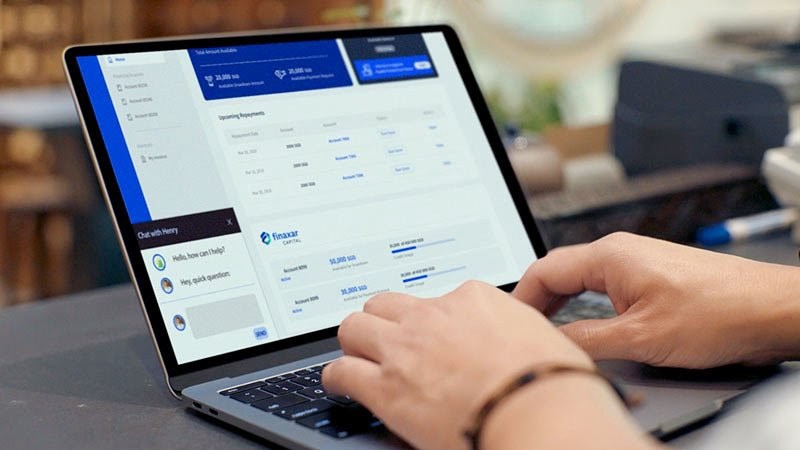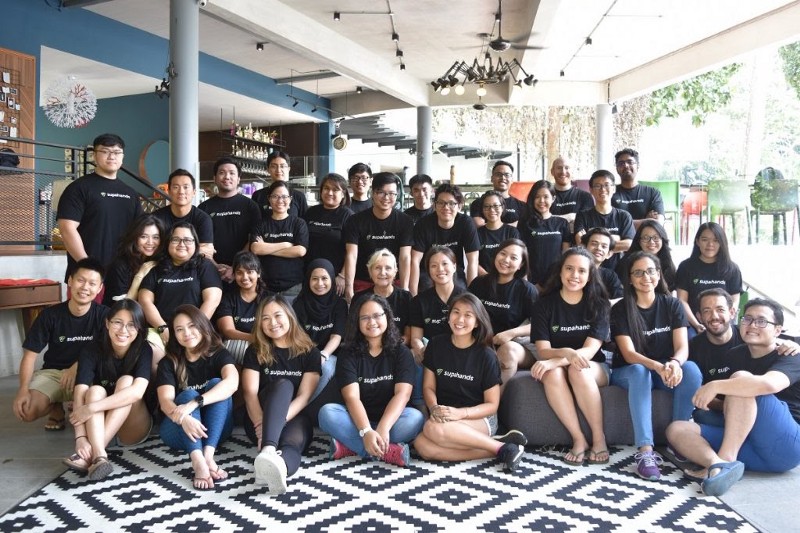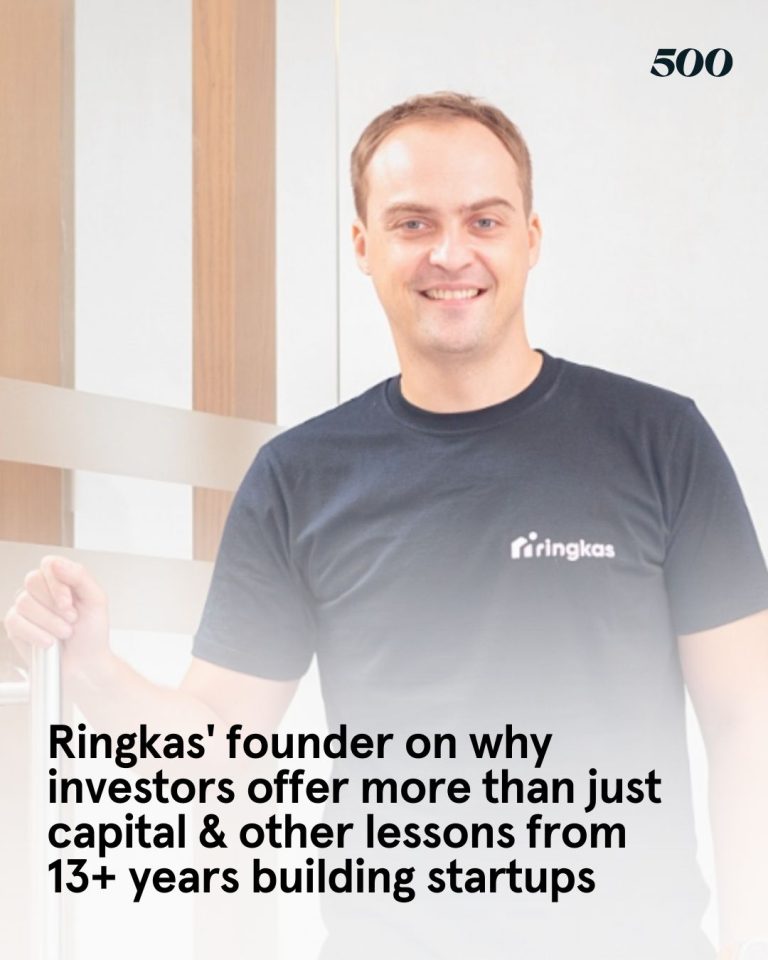
Reinventing B2C
- In August, 500-backed Carsome announced it had entered the business-to-consumer (B2C) market.
- Carsome started as a consumer-to-business (C2B) touchpoint for car users to sell their vehicles to dealers. The August announcement switches things around as Carsome moves from procuring to retailing used cars on its platform.
- Despite stiff competition in a saturated environment, the company is brimming with confidence due to a robust infrastructure its built from years of navigating the used-car ecosystem.

- “A lot of these platforms have been very focused on the demand side of the used-car sales ecosystem. Their revenue was driven by advertising, as well as listing fees from used-car dealers.
- “There was really no incentive for used-car dealers to be transparent with their inventory on these platforms, which is why it is so common to see questionable claims like ‘low mileage’, or ‘one previous owner’ on car listings. We saw this as an opportunity to come in and create a transparent and reliable buying and selling experience,” Eric Cheng, CEO and co-founder of Carsome, told The Edge Markets.
- Carsome’s B2C offers a five-day, no-questions-asked money back guarantee, on top of a one-year warranty.

- “Just like the dealerships that are confident of purchasing high-quality inventory from us, we’re now extending this same service to the individual customer,” he added.
- The B2C foray was complimented with a new flagship experience centre, at which prospective buyers can test drive vehicles and consult with sales agents.
- Read the rest of Eric’s interview here.
Fintech partnership
- 500-backed fintech company Finaxar is working with Visa to launch Flex by Finaxar, a program focusing on solving financial hurdles for small- to medium-sized businesses (SMBs) under one platform.
- Through this, SMBs will have a bird’s eye view of their spendings, helping them regulate their transactions based on real-time insights and setting up workflow processes, among other features.
- “Having worked closely with SMEs, we realised that businesses are challenged by slow transaction times due to manual administration of invoices, payments and receivables. This impacts their cash flow and overall responsiveness to business demands,” said Vihang Patel, Co-founder and CEO of Finaxar.

- According to a recent study by SAP Concur, the potential economic loss across Asia Pacific (APAC) due to inefficient finance and administrative processes could amount to US$21.5 billion annually. In Singapore’s context, this results in companies losing US$340 million annually.
- Although many companies have embarked on their digital transformation journeys, plenty still handle claims manually.
- “Developing Flex by Finaxar was our natural next step in creating a unified platform, and tapping on Visa’s strong global payments network and ecosystem, we can solve the challenges faced by [SMBs] and provide them working capital to address their needs,” Vihang added.
- Know more about Flex by Finaxar.
Adapt, adapt, and adapt
- For all its economic implications, the pandemic and its resulting social distancing measures have not affected the day-to-day operations at 500-backed Supahands.
- “We were always built for remote work from Day One, the infrastructure has always been distributed,” CEO and co-founder Mark Koh told Channel NewsAsia, adding that the team can manage and oversee the data labelling work carried out by 13,000 SupaAgents — a term for its freelancers — across Southeast Asia.
- Like many of his peers in the digital space, he believes the way forward is online.

- “The pandemic has accelerated the (automation) trend, made people aware that it is crucial to have a tech element to your business, especially for something like retail. It’s a perfect example, physical stores are shut, but you can quickly go online,” he said.
- In terms of client outreach, Supahand’s Chief Revenue Officer Greg Meehan said they’ve onboarded overseas clients, especially from countries where data and labelling companies have been hard hit by the pandemic.
- In a separate interview, Greg spoke of how Supahands is expanding globally, even in the midst of Covid-19.
Missed out the last Daily Markup? Go here to check it out.
You can also find us on LinkedIn, Facebook, Twitter, and Instagram.

500 Startups is a venture capital firm on a mission to discover and back the world’s most talented entrepreneurs, help them create successful companies at scale, and build thriving global ecosystems. In Southeast Asia, 500 Startups invests through the pioneering 500 Southeast Asia family of funds. The 500 Southeast Asia funds have backed over 240 companies across multiple sectors from internet to consumer to deep technology. It continues to connect founders with capital, expertise and powerful regional and global networks to help them succeed.
This post is intended solely for general informational or educational purposes only. 500 Startups Management Company, L.L.C. and its affiliates (collectively “500 Startups”) makes no representation as to the accuracy or information in this post and while reasonable steps have been taken to ensure that the information herein is accurate and up-to-date, no liability can be accepted for any error or omissions. All third party links in this post have not been independently verified by 500 Startups and the inclusion of such links should not be interpreted as an endorsement or confirmation of the content within. Information about portfolio companies’ markets, competitors, performance, and fundraising has been provided by those companies’ founders and has not been independently verified. Under no circumstances should any content in this post be construed as investment, legal, tax or accounting advice by 500 Startups, or an offer to provide any investment advisory service with regard to securities by 500 Startups. No content or information in this post should be construed as an offer to sell or solicitation of interest to purchase any securities advised by 500 Startups. Prospective investors considering an investment into any 500 Startups fund should not consider or construe this content as fund marketing material. The views expressed herein are as at the date of this post and are subject to change without notice. One or more 500 Startups fund may have a financial interest in one or more of the companies discussed.




